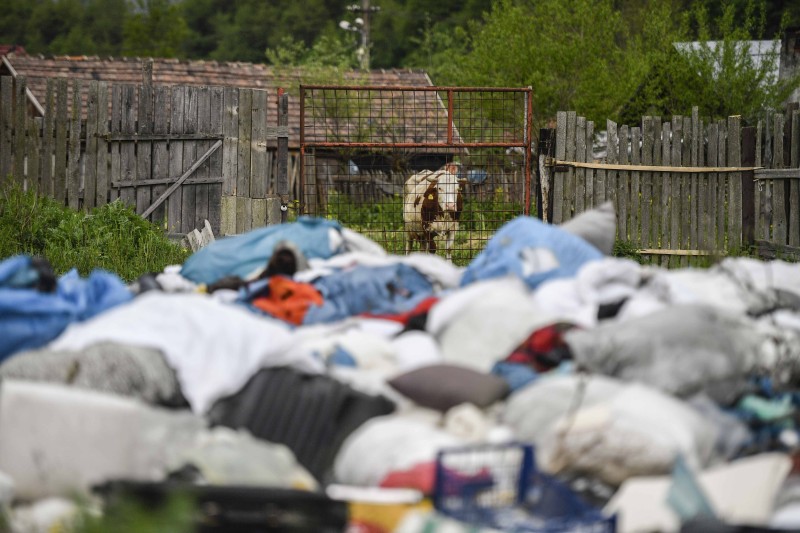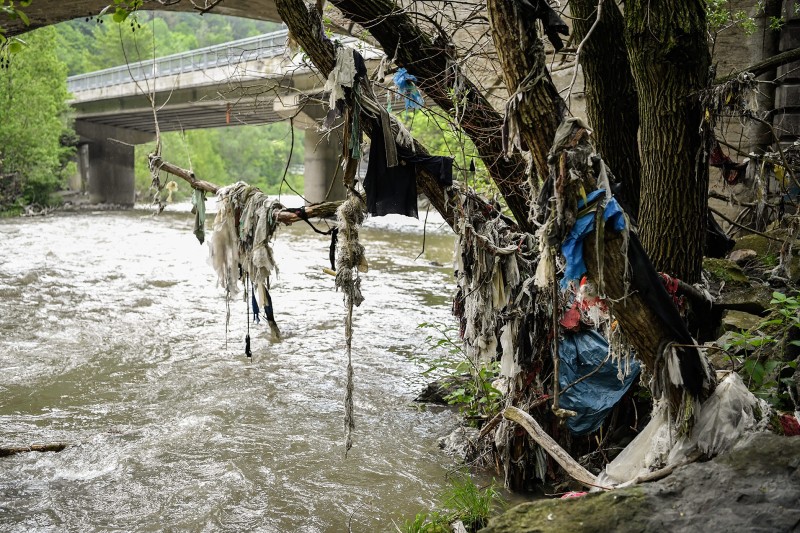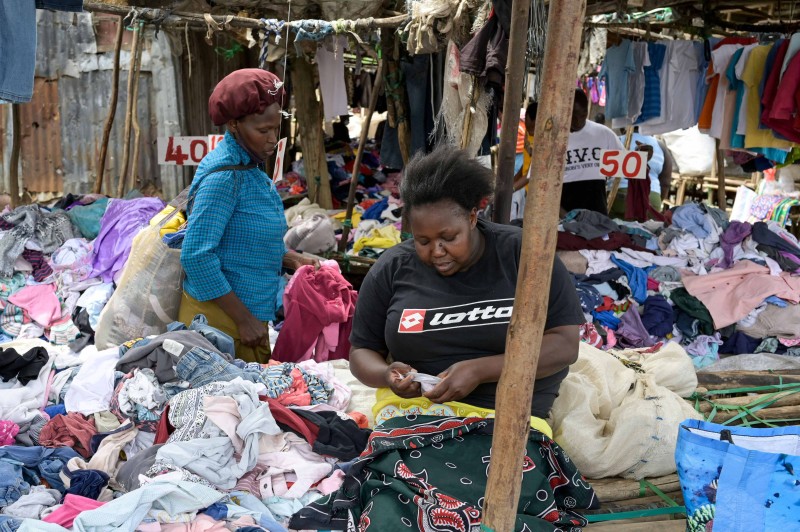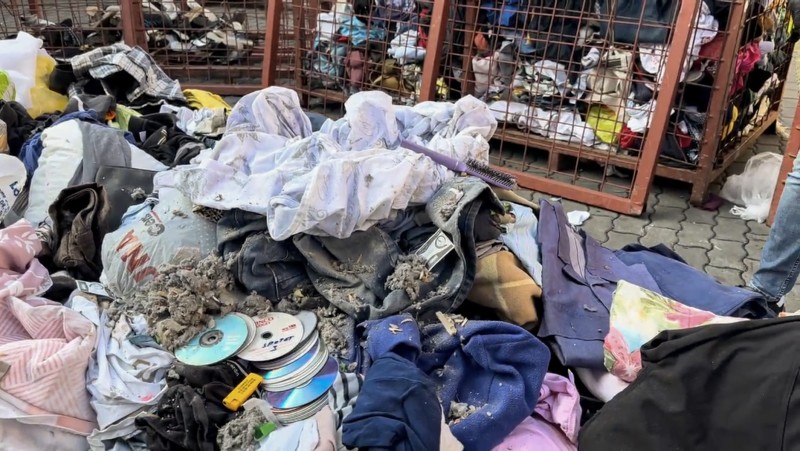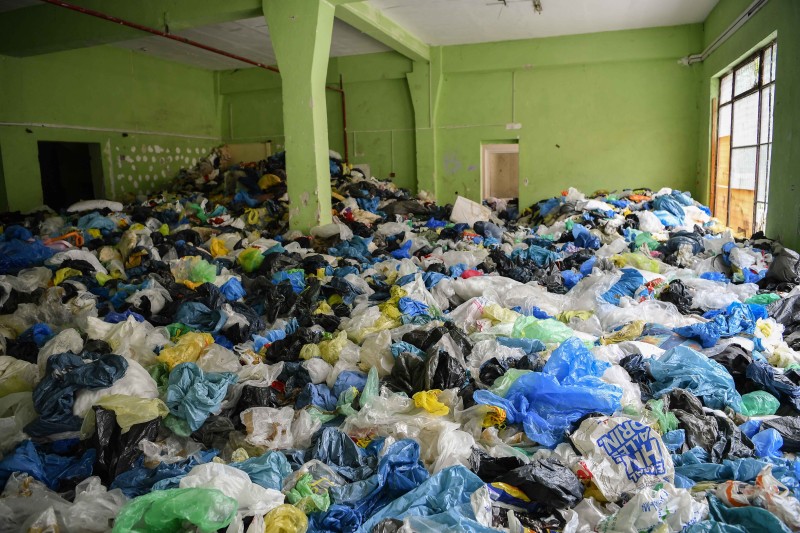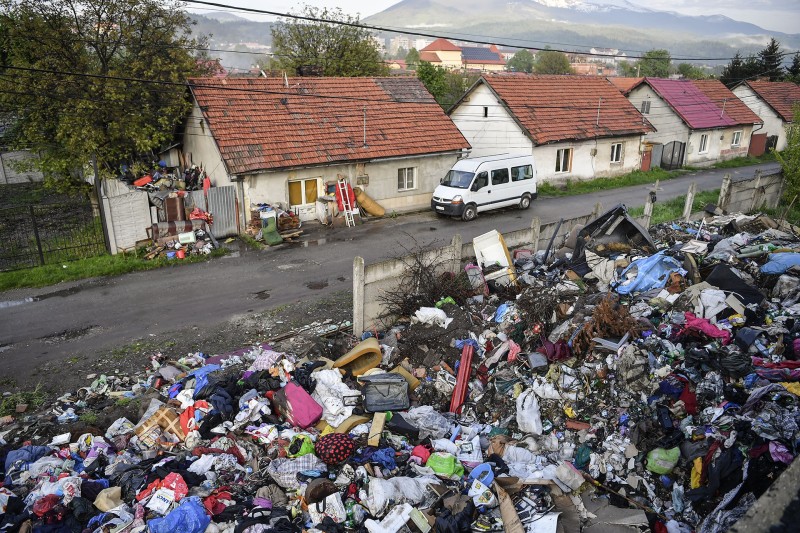But when the Consumer Protection Authority, responsible for inspecting secondhand clothes, comes by, they’ll be handed different documents claiming the truck is carrying waste.Of the trucks that were successfully stopped at the border, one was found to be carrying clothing that was “dirty, stained, with mold,” reads a document issued by the Environmental Guard Agency. Another shipment included non-textile items like CDs, children’s toys, and dirty shoes.
“These secondhand goods are actually waste in disguise,” the National Environmental Guard Commissioner, Andrei Corlan, told RISE. There is a strong economic rationale for sending shipments like this to poorer EU countries like Romania. In Germany, the cost of waste disposal runs from 200 to 300 euros per ton — roughly 10 times higher than the cost of doing it in Romania, according to a 2022 internal report from Romania’s Ministry of Internal Affairs.“We have a situation where waste generators from abroad send waste to Romania to get rid of what they don’t want to eliminate on their territory because it is more expensive to do it there than it is in Romania,” said CorlanOn the Romanian end, there are also financial advantages, he said.
Purchasing large shipments of “mixed” textiles is very cheap, and a small percentage of those textiles can be recovered and sold in secondhand shops. When the companies need to deal with the clothes that are too dirty to sell, he said, they offload it onto Romania’s poorest communities, like the one where Vasile lives. “This portion is loaded into black bags that are sold at a low price to various poor communities,” he said. “These communities also make a selection, after which the rest of the worst-quality imported products end up being thrown into the fields or into waterways.”
From a German Bin to a Romanian Dump
To understand how the used clothing trade can run awry, reporters traced a supply chain from one German exporter to a Romanian importer that environmental inspectors accused of illegally importing and discarding waste. The exporter, a private firm named Baliz Textilwerke that collects clothing from thousands of bins in western and southern Germany, sets out a laudable mission statement on its website. (Baliz Textilewerke did not respond to multiple requests for comment sent by OCCRP and RISE.)“We have made it our task to recycle wearable clothing and shoes and thus make our contribution to environmental protection,” it reads. “The mountains of rubbish are constantly increasing.”
It says on its website that it separates clothes from other items, such as shoes, toys, belts, and bags, before sending the shipments to countries including Romania, Poland, Italy, and Spain. But according to inspection reports and transport documents, Baliz Textilwerke’s exports to at least four Romanian companies in the Jiu Valley included used clothing mixed in with other items, such as “carpets, quilts, pillows, used or very used leather goods and household goods” — which, under Romanian law, should be classified as textile waste, since they were unsorted.
None of these Romanian importers Baliz Textilwerke sold to were authorized by the Romanian waste registry to import waste when the investigations started. Inspectors also described opening several bales of clothing during raids and finding products “in different stages of use, with stains, hair, and some of them ruptured,” even though some of Baliz Textilwerke’s shipments were accompanied by certificates stating they had been disinfected.
When reached for comment, one of the firms listed as responsible for the cleaning, a German company called WISAG Gebäudereinigung Hessen Nord GmbH & Co. KG, told RISE that it had only disinfected the exterior of the boxes and bags containing the textiles – not the actual clothing inside. The company said it wasn’t even equipped to disinfect or sanitize textiles, and had never offered such a service.One of Baliz Textilwerke’s major customers in Romania is the Jiu Valley-based Emily SRL, which imports thousands of tons of textiles annually from Baliz. Emily runs secondhand clothing shops in cities around Romania, where it sells some of the clothes it imports.

Credit:Alex Nicodim/OCCRP
An Emily secondhand store in Lupani, Romania.
But not all the textiles make it to these shops. Environmental Guard Inspectors raided the company’s depot twice in 2022 and again in 2023, with each inspection ending with a legal complaint filed with prosecutors and fines of up to $50,000 for breaking the environmental legislation.
Prosecutors told RISE they had opened two cases against Emily after receiving the complaints, but are still investigating whether the company had committed a crime. (No indictment has been issued in either case.).According to the complaints, after sorting out the sellable items from Baliz Textilwerke’s imports, the company was left with large quantities of unusable textiles and other products — over 100 tons in 2022, for example — that could not be sold in its clothing shops. The company was not equipped to import such waste at the time — that would have required being registered on a platform run by environmental authorities, and proving that it had the facilities or contracts to ensure the waste would be properly recycled instead of dumped. Not only did Emily lack such recycling facilities, inspectors found, but only a small portion of the waste it generated was sent to recycling firms.
Instead, the company was storing its waste in a two-story warehouse and eventually “hand over” or sell the bags to “unauthorized individuals” for as little as 20 euro cents.The bags would later be “disposed of illegally in landfills by these people, or simply thrown away on the riverbeds…or on the side of the roads where the waste is set on fire,” the files note.
Reporters who visited one of Emily’s depots in Uricani city found a one-story building filled to capacity with bags and clothes. Inside, the windows were sealed shut with black plastic. After requesting an interview with the company’s owner, Ion Duman, reporters were told by a local manager that “the boss is not available.”


